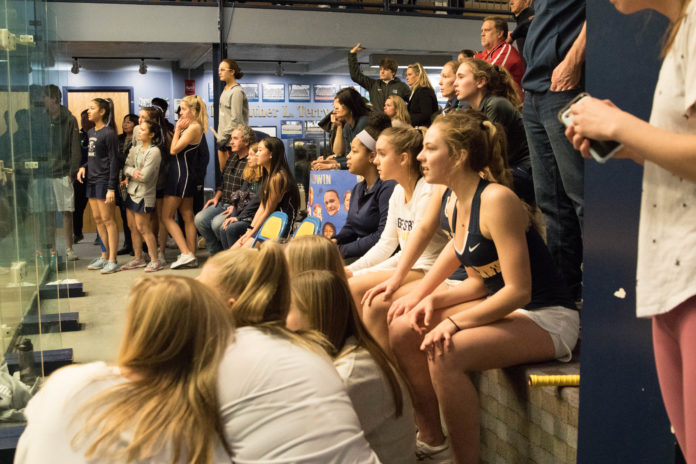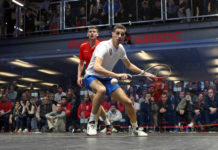by Sheldon Anderson, US Squash Pro Tour 2 Referee
I grew up hearing “It’s not whether you win or lose, it’s how you play the game.” This seemed pretty straight forward at the time but more recently, in an increasingly competitive world, finding an edge has become the mantra. Many routinely equate winning with success. We look at scoreboards, standings and rankings. We talk about winners and champions.
Squash prides itself on the integrity and character inherent in the game. That integrity and character is tested when outside influences interfere with play inside the court. There has always been pressure on players to perform and do their best but that pressure escalates when the coaches, parents, friends and trainers attempt to impact play. Not only is this unfair; it’s against the rules.
In conversations with many professional coaches and players, I have learned there is a consensus that coaching during play can affect performance on the court. (Coaching, of course, is allowed between games, but not during play.) Although several rules apply to fair play, rule 15.6.10 specifically addresses the area of mid-game coaching: “if a player receives coaching during play, the referee must penalize the player.” This simple phrasing is intentionally designed to address a wide range of issues and not cover every specific situation. It does not define what coaching is, but rather leaves the issue up to the discretion of the match referee.
It is important to note the emphasis this rule places on the player receiving coaching. It does not address the individual causing the issue. To prevent inappropriate coaching, the referee must be able to identify it is occurring, be able to adequately define it and then stop play, penalize the player and explain it in such a way that it does not reoccur. By warning or penalizing the player, you are at the same time essentially warning the individual creating the violation.
We interpret mid-match coaching to be specific instructions or directions intended to change or influence a player on the court during play. Reminding players where to hit the ball and position themselves can influence a match. It is against the rules. Referees must penalize the player when they see or hear it occur. These instructions can be verbal or through the use of visual signals or signs. Coaching may influence players to reinforce the strategies, movement and structure they worked on during practice and discussions between games. Coaching could also be influential during critical points in a game and can affect a player and the outcome, which is why it is against the rules. We teach officials to identify coaching by comments and/or signals interpreted to be instructive or directive in nature. Words like “move up”, “length”, “shorter”, “cross” are things we direct our officials to take action on. Words such as “focus”, “great shot” and, “come on” are considered acceptable. We also teach the officials to look at the contact between the coach and the player. If we see hand gestures, we consider that coaching and should be penalized. For example; if a player looks at their coach who is pointing towards the back corners of the court, that is breaking the rules.
We are very careful when teaching referees to address coaching at events. At large events like the U.S. Junior Open, we embrace the diversity of participants who attend. Many parents, friends and coaches are in attendance to celebrate and support their players. We must not misinterpret their behaviors and automatically assume something improper is occurring. In my experience, it is a very small minority of people who come to a squash match with an unethical intent to influence the outcome during play. Sometimes we just need to remind people when is the right and wrong time to coach.
With an increased emphasis on results, officials must focus on the environment outside the court that could impact the outcome. A referee must fairly apply the rules and ensure we uphold the integrity and spirit of the game and the manner in which it is to be played. US Squash’s Code of Conduct for parents, coaches and attendees establishes responsibilities and expectations for words and actions while attending, coaching, or officiating at a US Squash-accredited event. Officials have an obligation to ensure they preserve and promote the character and integrity of our sport. This obligation extends to those who support and celebrate our players. As Bill Belichick said: ”Talent sets the floor, character sets the ceiling.”





